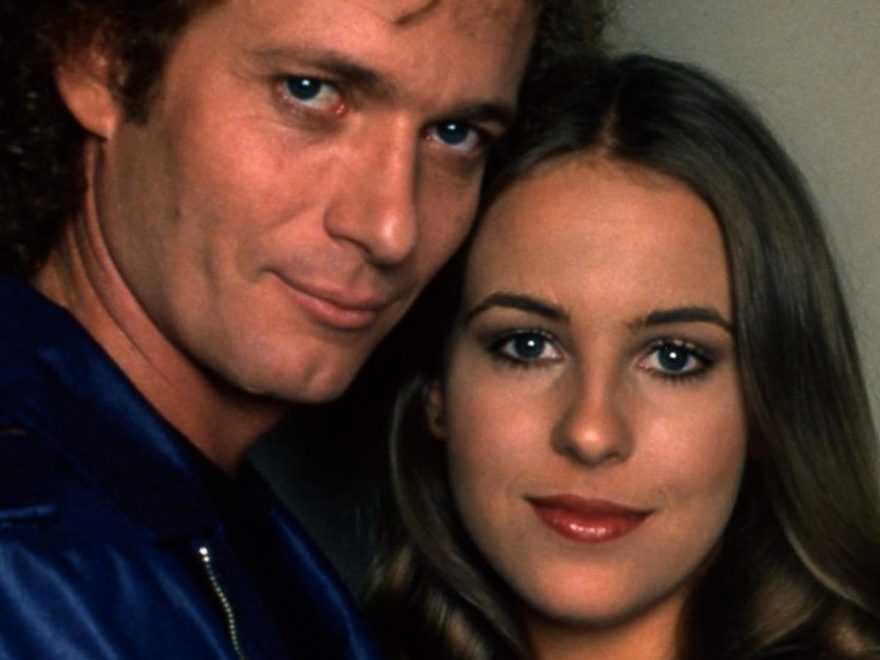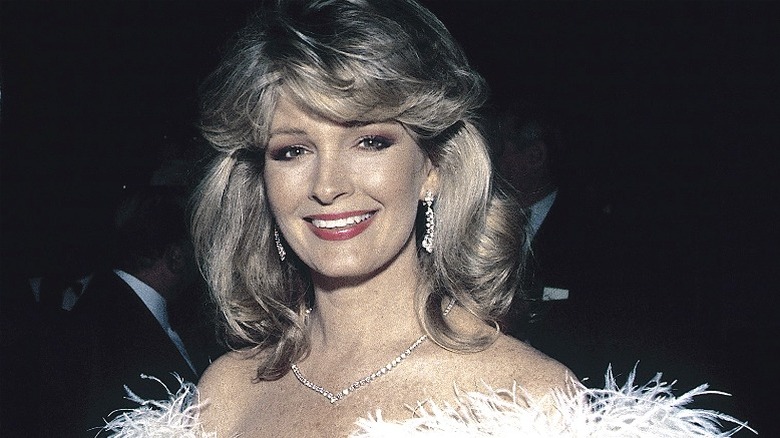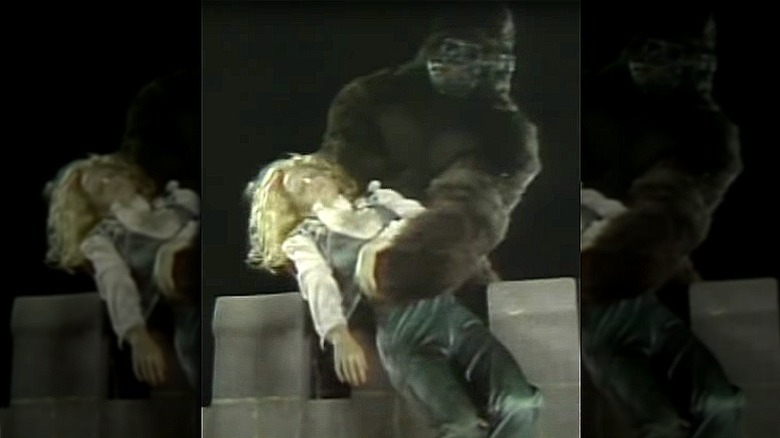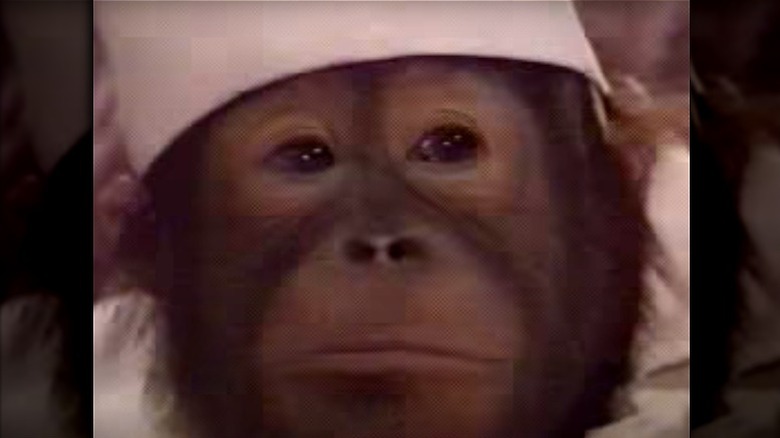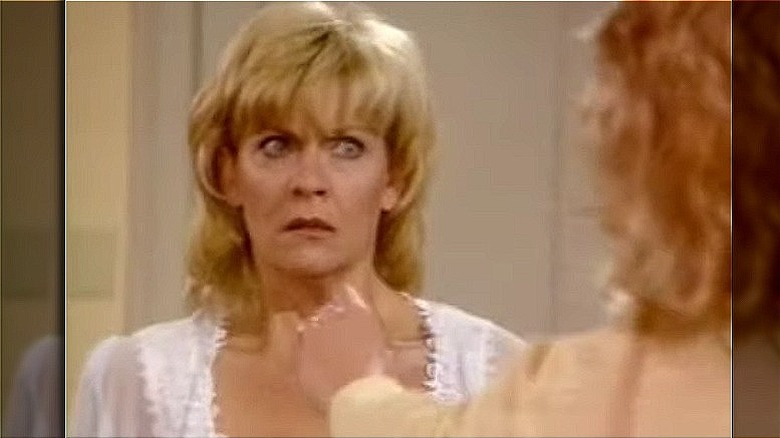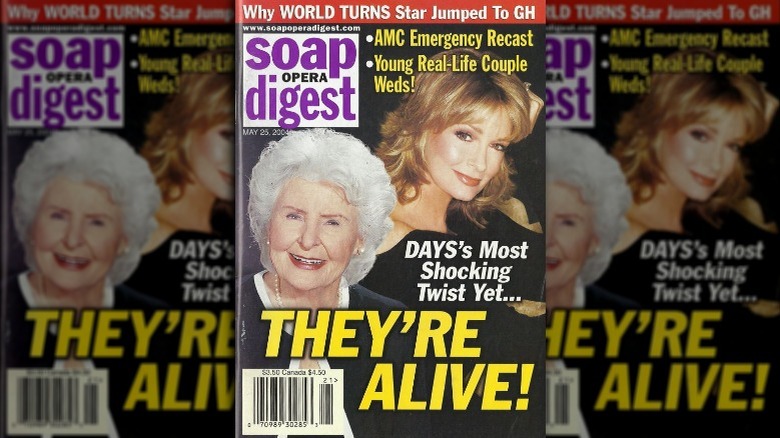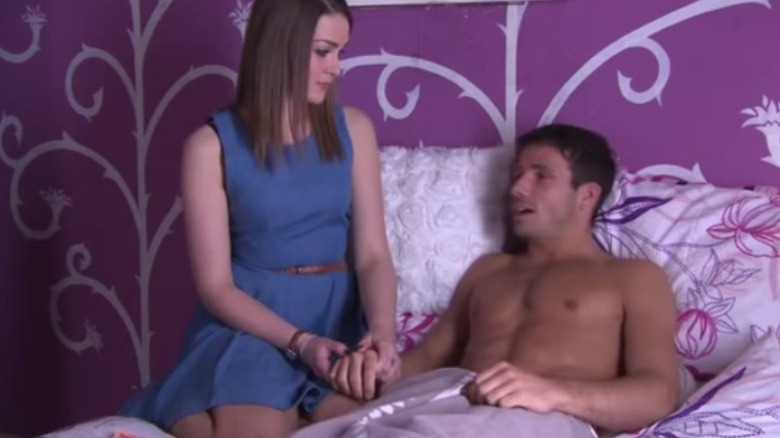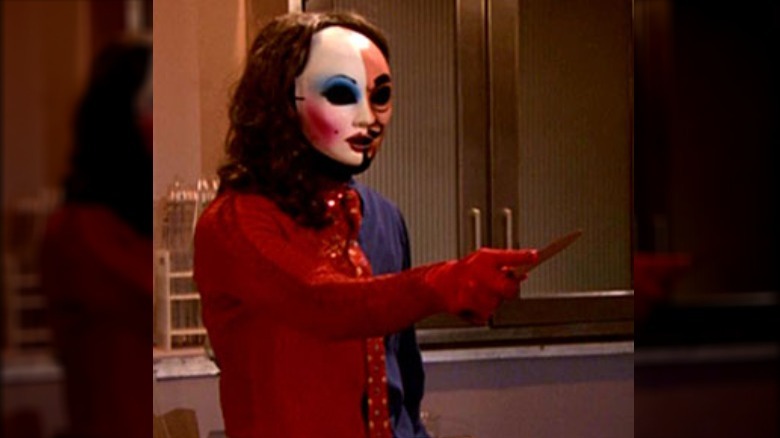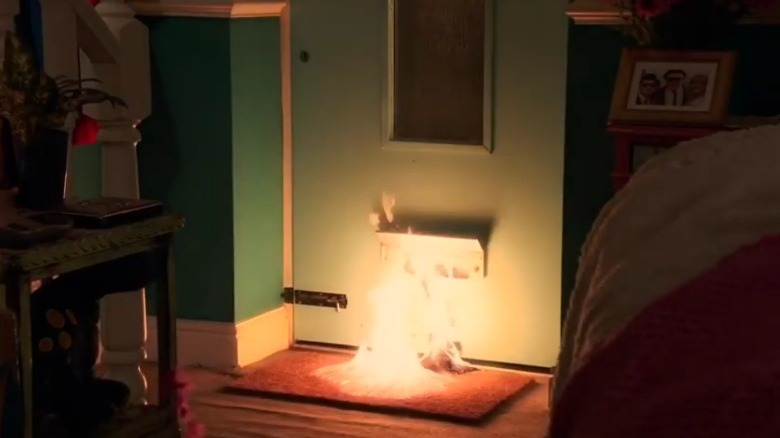It’s no secret that soap operas have the reputation of being a little outrageous — okay, a lot outrageous. The campy absurdity, the over-the-top drama, and the endless cliffhangers have kept viewers enthralled for over 60 years.
Soap operas got their sudsy epithet when soap companies, most notably Procter & Gamble, started sponsoring these serialized daytime dramas as radio programs in the 1930s. And some of these series (like “Guiding Light”) that began in the radio era survived into the 21st century, passed down through generations.
In the world of streaming, the popularity of soaps waned, but their influence remains in modern television drama (even if you think you don’t like soaps, it’s likely your favorite TV shows have borrowed elements from them). Still, soap operas are far from high art. That’s because, over time, most have adopted a policy of sensationalism for the sake of sensationalism, pumping out eye-catching, mind-bending melodramatic plots on a daily basis for decades.
So to be fair, there’s an endless number of times when one might say soap operas went too far. That is, after all, kind of the point of soaps. However, even fans who live for the drama have their limits on what plots they can accept without question. Let’s take a closer look at times when soap operas stretched reality a little too far or crossed lines that made viewers feel uncomfortable.
Passions' insensitive exploit of Princess Diana's death
When “Passions” premiered on NBC in 1999, it was odd from the get-go —remember the neighborhood witch bringing a doll to life? But the plot about Sheridan Crane, a daughter of a billionaire and close friend of the recently deceased Princess Diana, was more insensitive than odd. The character worries she will die like Diana, because, as she continuously reiterates, they were “so similar.” After she crashes her car in the same tunnel as Diana, she’s taken to the same hospital and receives a vision from the spirit of Princess Diana herself. Maybe the most cringe-worthy moment of the whole saga: when Crane finds out she isn’t severely injured, she says, “Thank God I was wearing my seat belt. If only Diana had been wearing hers.”
The critics pounced on “Passions” within its first week, with Entertainment Weekly noting, “Not only has ‘Passions’ creator James E. Reilly appropriated the memory of a dead royal to create a sensational story line, he’s also put words in her mouth.” Reilly defended the plotline, telling BBC News that Sheridan’s relationship to Diana was only meant “to establish Sheridan’s identity” and would not “be a recurring theme.” He also insisted that the show “didn’t tarnish [Diana’s] image,” but rather, “burnished it” with the “very reverential … way that we treated her.”
However, the actress who played Sheridan Crane, McKenzie Westmore (above), was embarrassed by the story, telling We Love Soaps, “I remember … watching it and going ‘Oh my god, I just started my career and now it’s over. That’s the end. I just trashed the whole memory of Princess Diana.'”
The dark origins of the most famous soap opera couple
Laura and Luke’s wedding on General Hospital is still the most watched hour in soap opera history. According to The Los Angeles Times, 30 million people tuned in. But their relationship started with sexual assault, which at the time (and still today) sparked debate on the portrayal of rape in soap operas and entertainment in general.
Many viewers found the 1978 rape scene troubling, but the producers and writers inexplicably used love as an excuse. Genie Francis, who played Laura, explains in ABC’s 2020 documentary “The Story of Soaps,” “Gloria Monty [the executive producer] tried to deal with it by calling it ‘rape-seduction.’ The term now would be ‘date-rape.”’ She added, “I’ve had to justify it for so many years and I have to say it feels good to sit here and say I won’t justify it. It’s awful and they shouldn’t have done it.” Krista Smith, a Netflix consultant also featured in the doc, called the plotline “detrimental” and “particularly egregious especially since women were the primary consumers of soap operas during the day.”
In 1998, “General Hospital” revisited the issue within the series. Abigail de Kosnik, author of “The Survival of the Soap Opera,” notes in the documentary, “For almost the whole year, [“General Hospital”] addressed rape head-on in a whole new way. And for the first time, Laura confronted him about having assaulted her.” She continued by explaining that this “allow[ed] Luke and Laura to finally confront head-on something that had been repressed, not just in their relationship, but in a lot of fans’ memories.”
The devil of daytime television
In 1995, “Days of Our Lives” made a bold decision to sprinkle some horror into the show. In what became one the most infamous plots in all of soap opera history, Marlena was possessed by the devil.
While the character of Marlena had her fair share of trials and tribulations, including being kidnapped and held captive “in the boiler pit of an abandoned warehouse” and on a different occasion “in a gilded cage below the streets of Paris,” she was almost always the irreproachable victim. That is, until she became susceptible to demonic forces and turned into the one terrorizing the town of Salem. Up until this point, “Days” was a more traditional soap, so the sudden, months-long turn to gothic elements felt jarring to many viewers.
Entertainment Weekly wasn’t a fan, reporting the storyline, which was the brainchild of none other than James E. Reilly (yep, the Princess Di guy from “Passions”), was “jeered by fans and critics alike” and amounted to “the dumbest soap plot ever.” One person who loved it, however, was Deidre Hall (above), who plays Marlena. Speaking with Today, she commended Reilly, who she described as “a devout Catholic,” for pursing his “passion project.” She described the possession plot line as “groundbreaking” and “magnificent,” and even claimed, “We got a lot of young people for that story.” Whether that’s true or not, it seems “DOOL” wasn’t scared away by the spooky reviews, because in September 2021, the show started promoting what is believed to be a return to the controversial storyline.
Beauty and the beastly gorilla
“Ryan’s Hope,” a soap about an Irish-American bar-owning family in New York City, aired on ABC from 1975 to 1989. In 1980, a whole week of shows included a drawn-out plotline about a gorilla named Prince Albert from the Central Park Zoo, befriending one of the main characters, Delia. In one of the early moments of the saga, the zookeeper tells Delia that the gorilla would “much rather be out swinging through the underbrush, preferably toward a lady gorilla.” Prince Albert then develops a crush on Delia, escapes the zoo, kidnaps Delia, and imprisons her in Belvedere Castle in Central Park before eventually throwing her off its tower.
Claire Labine, who wrote over 1,000 episodes of the show, defended the story arc to We Love Soaps, saying, “I loved those scenes. It was a story about alienation. It was Delia relating to the one persona that she could relate to at that point.” She added, “We were quite fascinated by all the ape research that was in the era when that was first being explored.”
Some fans viewed it as absurd. Writing into Daytime TV Magazine in 1980 (via Ryan’s Bar Online), one fan asked, “Did somebody put LSD in the writer’s coffee over at ‘Ryan’s Hope?’ That story of Delia being kidnapped by a gorilla was as silly as something you’d see on Carol Burnett’s show.” Another wrote, “Whoever the actor was playing the ape of ‘Ryan’s Hope’ deserves an award — for making such a big fool of himself on national TV.”
A 'passion' for a 'precious' primate
Speaking of apes in soapland, remember the orangutan that played a nurse named Precious on “Passions”? Yes, you did read that correctly — a real orangutan was a cast member on the soap for two years. Writers even gave the character a romantic arc; Precious was in love with a human named Luis and often had elaborate daydreams about the two of them living a happy life together (don’t worry, the love was unrequited).
Bam Bam got his fair share of attention, appearing on “The Ellen Show” in 2003 and was enjoying daytime Emmy consideration before being blocked by the American Academy of Television Arts and Sciences, because, well, he’s not human.
Nurse Precious was as silly for viewers as it was outrageous for activists. Per Soapcentral.com, PETA was beyond irked. The organization quickly recruited famed environmentalist Jane Goodall, who wrote a reproachful letter to NBC chief Jeff Zucker asking him to “join the growing number of businesses that refuse to sanction or participate in this gross misuse of creatures who are vulnerable to our exploitation precisely because they are so like us.” The non-profit group The Truth About Nursing also protested Bam Bam’s casting as an example of “degrading mass media images of nursing,” that served to “reinforce powerful stereotypes that contribute to the critical nursing shortage.”
NBC defended “Passions,” stating, “Production personnel unanimously treat Bam Bam … with the utmost care and tenderness, far exceeding compliance with current humane laws and mandated regulations.” Bam Bam eventually retired from Hollywood to the Center for Great Apes in Florida, alongside other retired entertainment primates, including Michael Jackson’s former pet, Bubbles.
Fans hated this Guiding Light storyline
“Guiding Light” is the longest-running soap opera, beginning as a radio show in 1937 and continuing on television for 72 years until CBS canceled the historic series in 2009. The enduring soap had its fair share of overly melodramatic plots, but was less susceptible to supernatural and sci-fi elements than other soaps were at the time. That precedent changed in 1998.
When one of the main characters, Reva Shayne, is believed to be dead, her husband allows a scientist to clone her using her frozen eggs. But the real Reva isn’t actually dead and returns to find a replica of herself living in her home. Not only was the plotline scientifically unrealistic, but fans also found it “morally offensive” and wondered whether “the writers were trying to kill off the ailing soap” with the “outlandish” plot, according to The Hartford Courant. Even Kim Zimmer, who played Reva, acknowledged the storyline was “absurd,” but admitted her memoir, “I’m Just Sayin’!,” that she “personally liked it because it stimulated [her] as an actress. … not to mention the bump in salary [she] got for playing two parts.”
Where Zimmer found creative fulfillment and a fatter paycheck, some fans found annoyance. On particularly irate viewer started a petition, demanding an immediate halt of the cloning story. They derided it as a “pitiful [attempt] to gain higher ratings” that would be “devastating to the long time viewership” and “sully the name of ‘Guiding Light.'” A little over 300 respondents claimed they would “stop watching” if the cloning story progressed.
Death by Donut (and other ways to die on Days of Our Lives)
In 2003, “Days of Our Lives” introduced the Salem Stalker plotline that had many fans up in arms due to the one-by-one murdering of popular characters in various odd ways. Viewers were especially put off when the stalker killed Alice Horton (a character who had been on the series since the first season in 1965) by stuffing one her own locally-revered homemade donuts in her mouth, causing her to choke. This death felt particularly brutal to fans, but the other deaths were no less bizarre. One of the victims was brutally murdered and stuffed into a pinata and another character was attacked by a tiger after the killer dumped a bucket of blood on him.
According to Entertainment Weekly, “Soap critics derided the show’s quick decline into death, gore, camp, and supernaturalism.” Not surprisingly, the plot was written by — you guessed it — James E. Reilly, the “Days” demonic possession plot and “Passions” Princess Di story scribe. Reilly was apparently brought back to “Days” after a ratings slump and defended the Salem Stalker story by saying, “I was never trying to destroy the fabric of this show. But I did have to shake it up because it was really in trouble.”
The whole saga ended with all the dead characters returning after it was revealed that their deaths were a hoax and they had actually just been kidnapped and taken to an island. Even for soaps, this was a bizarre turn of events.
Why Chadwick Boseman was fired from All My Children
Chadwick Boseman portrayed the character Reggie Montgomery on “All My Children” in 2003. But his stint on the soap was short-lived. The future “Black Panther” star quickly realized that his character’s background was littered with stereotypes about young black men. After only one week of shooting, Boseman began to feel uncomfortable. He told The Wrap, “I remember going home and thinking, ‘Do I say something to them about this? Do I just do it?’ And I couldn’t just do it. I had to voice my opinions and put my stamp on it.”
In 2020, Boseman’s agent, Michael Greene, recalled the incident via The Hollywood Reporter, explaining, “After Chad’s first script, they literally said, ‘Oh, here’s your next script, and your mother’s a crackhead and your father left.’ And he goes, ‘I’m not playing those images,’ and he went into the writers room, and they fired him.”
Afterwards, Boseman’s future “Black Panther” co-star, Michael B. Jordan, took over the role. Though the executives fired Boseman, they did hear his concerns and changed the character slightly after Jordan stepped in. “They said, ‘You are too much trouble,’ but they took my suggestions, or some of them,” Boseman told The Wrap, adding, “And for me, honestly, that’s what this is about.”
While several soap operas have historically been progressive when telling diverse stories, “All My Children” seems to have majorly missed the mark on this one.
The odd way Crossroads tried to remedy a tarnished legacy
In 2001, ITV revived the classic British soap “Crossroads” that originally ran from 1964 to 1988. The revival sought to give the series, which revolved around the staff and guests of a motel, a remodel for the millennium. In Season 2, Jane Asher (above) joined the cast as Angel Samson, the new glamorous “superb*tch” hotel owner.
Sadly, the series never found the same success as the original run and after 2 years, it was cancelled. Because of its failure, poor ratings, and lack of appeal to fans, the original franchise was at stake of being sullied forever. What could the writers do but write it all away?
In the final episode, it is revealed that the entire reboot was nothing but a dream. Angel was just a supermarket employee named Angela, who was a “Crossroads” fan and had dreamt up the entire two seasons. In the end, the new “Crossroads” was just fan-fiction of the original “Crossroads” both within the series and without. The meta-ness of the odd ending left viewers scratching their heads. The Guardian commented that “ITV may now be freeing itself from a waking nightmare.” In an interview with Asher, the same outlet identified her “Crossroads” run as her “low point,” which she seemed to acknowledge by saying that the show “didn’t take me into the realm of high art, but I had a lot of fun.”
Is this British teen soap obsessed with incest?
Incest plots run rampant soap operas, but “Hollyoaks” has explored the controversial subject three times. Though “Hollyoaks” is known for successfully dealing with difficult topics, including anorexia and male rape, the show’s incest plots seem more sensational than purpose-driven.
The series first portrayed incest in 2007, when characters Rhys and Beth began a romance only to find out later that they were half brother and sister. Even more awkwardly, they continue the affair even after discovering they’re related. The producer, Bryan Kirkwood, admitted to Channel 4 that while the storyline “was always going to push the boundaries,” it ultimately failed “because the character was a cardboard cut-out and poor Andy Moss who played Rhys wasn’t given a chance to succeed.”
“Hollyoaks” returned to an incest plot again in 2012, with twins-turned-lovers, Dodger and Sienna (above), who were unaware they were separated at birth. And in yet another shocking (and arguably unnecessary) twist, Sienna became pregnant with Dodger’s baby. Then, a 2020 storyline saw Toby use incest as part of a devious plan. The Sun noted, “‘Hollyoaks’ fans are in shock after Toby seduced his cousin Lisa and then outed his brother Mitchell to his family,” though it’s unclear which controversial issue disturbed fans more.
Will “Hollyoaks” ever give up incest as a plot device? Who knows, but at least the writers of “Days of Our Lives” allegedly pledged “no more incest” to TV Guide in 2006 according to a Soap Opera Network board.
The Passions character that stirred controversy (more so than usual)
The Vincent Clarkson storyline on “Passions” was complicated to say the least. In a plot twist, it was revealed that Vincent was also the character Valerie (who had originally been played by a separate actor), was intersex, and identified as both a man and a woman. The storyline began with Vincent having an affair with Chad. Viewers soon learned that Chad was actually Vincent’s half uncle. And later as Valerie, the character became pregnant with their long-lost father’s child. In an additional revenge plot, Vincent terrorized the town as a masked blackmailer.
This character stirred mixed reactions, some praising “Passions” for the LGBTQ and intersex representation, while others pointed out the plotline’s problematic portrayal of race and needless inclusion of incest. While some fans wrote in and complained about the depiction of gay sex during daytime hours, many others supported it at least one aspect of it for normalizing the portrayal of gay relationships. The Windy City Times, however, slammed “Passions” for having “recklessly [written] a down-low storyline which involved an African-American man but eventually turned it into an outrageous intersex serial killer storyline.”
In an interview with Tracey Ross, who played Eve on the daytime drama, Soaps.com noted “Vincent giving birth to his father’s child has certainly been one of the strangest and most dividing storylines among the fans.” Asked for her own take on it, Ross responded, “That storyline made me physically nauseous.”
The Coronation Street'scene that had fans threatening to boycott
In 2020, when the long-running British soap “Coronation Street” aired an episode that ended with an arsonist setting fire to a home with babies inside, many fans thought the scene went “too far” according to Birmingham Live. The publication explained, “Viewers watched as a flaming rag soaked in lighter fluid was pushed through the letterbox and the fire rapidly spread throughout the house causing the babies to cough and splutter.”
Angry fans took to Twitter (via The Mirror) to express their disgust, writing things like, “@Ofcom @ITV @itvcorrieI really didn’t like seeing someone pouring flammable stuff through a letterbox and setting fire to it when teens And kids are watching. What the hell has coronation street become?” and “A story line too far for me sorry !” Another viewer tweeted, “How sick does coronation street get setting fire to a house with four babies in and mum asleep.”
The show’s network, ITV, responded to the criticism and defended the scene. According to The Manchester Evening News, a spokesperson for the network stated, “Coronation Street has never shied away from tackling difficult issues and the vigilante attack in this week’s episode highlights the dangers of individuals taking the law into their own hands rather than leaving such matters to the proper authorities.”
Source: Read Full Article
